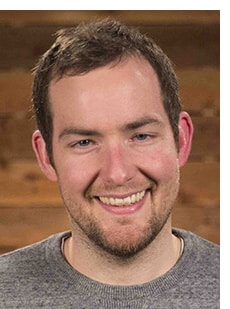By Chris Moon
Though Southeast Christian Church’s residency program hasn’t been around long, it has seen some ups and downs.
But since the depths of the COVID-19 pandemic, it’s been going great, said Ben Cross, the pastor of residency and theology at the Louisville-based multisite megachurch.
Southeast’s 215 Residency program is in its fifth year and has seen its numbers rebound following a brief swoon that coincided with the pandemic. The two-year program gives residents firsthand ministry experience along with a deep dive into biblical study and spiritual formation.
SECC’s first class of residents in 2018 totaled 6 students. The next two cohorts showed an uptick with 8 and 10 students each before a downturn in 2021 with just 6.
“We did slow down a little bit,” Cross said.
This year’s program launched in June with a class of 12, putting the program back on track.
“I would hope we could continue to grow,” Cross said.

A FULL MINISTRY EXPERIENCE
Before creation of the 215 Residency in 2018, Southeast Christian Church had offered a long-standing internship program for future pastors. It gave internships to 6 to 8 young people per year.
Cross, himself, was an intern at Southeast 12 years ago. It had been a great thing for the church and the interns.
But among the church’s staff, the thought percolated that perhaps a new approach was needed.
“We can do more people than this,” Cross remembered thinking.
He said a volunteer group of Southeast staffers began sketching out the design for an improved residency program.
Now, the 215 Residency program is a full-fledged ministry of Southeast, with Cross at the helm.
It takes its name from 2 Timothy 2:15: “Do your best to present yourself to God as one approved, a worker who does not need to be ashamed and who correctly handles the word of truth.”
The residency program recruits graduating Bible college students, as well as prospective ministers from within the Southeast church family, to spend two years in the program developing their theological education and practical ministry skills.
Residents work in specific ministry areas—such as worship, missions, connections, pastoral care, or preaching—and spend one day a week in the classroom working through an in-depth spiritual formation, Bible, and practical ministry curriculum.
The program provides an educational stipend to its residents, and it offers them help in finding housing during their two-year stay at Southeast.
“We tell them we want you to get the fullest experience of what it’s like to work in ministry as you can get,” Cross said.
POINTED TOWARD MINISTRY
A new cohort of residents begins each June. About half are recent Bible college grads, while the other half come from within Southeast’s congregation.
“I think both of those avenues are great for us, and both are fruitful,” Cross said.
He said the 215 team regularly visits Bible college campuses to recruit new residents.
Meanwhile, ministry teams at Southeast are identifying people within the church who may have a calling to full-time vocational ministry.
Cross said some of residents had been attending local colleges seeking a variety of degrees and occupations—but then discovered their hearts really were aimed toward ministry. Many have been serving the church for years already.
“That’s always been the thing they did,” Cross said. “They don’t want to do anything else.”
One resident, he said, was an athlete at the University of Louisville and was impacted by the university’s campus ministry. She finished college and came to train for ministry at Southeast.
Another resident graduated college with an accounting degree and spent a few months working in that vocation before recognizing God had other plans for his life.
GROWTH ON THE HORIZON
Cross said the 215 Residency program still is “pretty young,” and yet he is convinced it has been bearing fruit.
Sixteen people have graduated from the program so far. Some are working at Southeast, and some are at other churches. One resident has taken a job at an inner-city school.
In exit interviews, a consistent theme has been the improved spiritual life of the residents.
“It really is what matters to us—to me,” Cross said. “Consistently, they have said, ‘I have a better, more thriving quiet time—a more consistent quiet time than I had before.’”
He added, “[People] leave here saying my walk with [God] is better, my knowledge of him is better.”
So, what’s next?
Cross said the hope is that the 215 Residency program will keep growing, although he doesn’t have a firm goal in mind for the ideal number of residents. Southeast has 18 in the program currently—12 in their first year and 6 in their second year.
“We’ve purposely not grown big,” he said. “We really want to establish a culture and make tweaks. . . . We were more focused on trying to grow well than grow large quickly.”
But growth is surely coming, he said, based on the interest the 215 Residency is receiving from ministry prospects.
“Every indicator that we have points to that,” he said.
(Tomorrow we will share an article about how Southeast Christian Church’s “more proactive” ordination process is bearing fruit.)
Chris Moon is a pastor and writer living in Redstone, Colo.

And you have Bible college professors teaching the courses to provide a solid base? Hopefully, you haven’t watered down your doctrine to become another “evangelical” group.